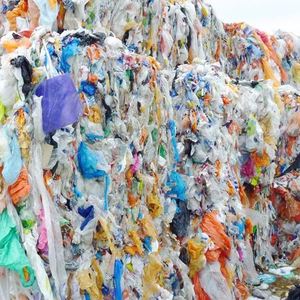Neste aims to use waste plastic for fuels, new plastic production

Photo: Neste Corp.
July 18, 2018
BY Neste Corp.
Neste, the world’s leading producer of renewable diesel, is now exploring ways to introduce liquefied waste plastic as a future raw material for fossil refining. The aim of the development project is to proceed to industrial-scale trial during 2019. The company’s target is to process annually more than 1 million tons of waste plastic by 2030.
“Neste has been ranked the world’s second most sustainable company and we are already the world’s largest producer of renewable diesel from waste and residues,” said Matti Lehmus, executive vice president of Neste’s Oil Products business area. “Our target is to also be a leader in low-carbon refining and support a circular economy by developing innovative solutions based on waste plastic. With our strong legacy in raw material and pretreatment research, we are in a unique position to introduce waste plastics as a new raw material for fossil refining. At the same time, we aim to provide solutions to support global plastic waste reduction.”
Using waste plastic as a raw material increases material efficiency, reduces crude oil dependency and carbon footprint of products based on such raw material.
Advertisement
In Europe, some 27 million tons of post-consumer plastic waste is generated annually. Only about one-third of this amount is currently collected for recycling.
In January, the European Union released its Strategy for Plastics in a Circular Economy. One of its objectives is to increase recycling of plastics and reuse of plastic packaging by 2030. In the EU Waste package, recycling target for plastic packaging was raised to 50 percent by 2025 and 55 percent by 2030.
“In order to reach the ambitious EU plastics recycling targets, both chemical and mechanical recycling need to be recognized in the EU regulation,” Lehmus said.
Chemical recycling means using waste plastics as raw material for the refining and petrochemical industries to convert them into end products such as fuels, chemicals and new plastics. Chemical recycling can create new outlets for plastic waste by enabling high-end product qualities, thereby complementing traditional mechanical recycling.
Advertisement
Reaching industrial-scale production of products from plastic waste still requires development of technologies and value chains. To accelerate development, Neste is looking for partners across the value chain, for example in waste management and upgrading technologies.
“Circular economy is built upon joint efforts,” Lehmus said. “We wish to partner with leading companies throughout the value chain, who share our sustainability values and ambition, and are ready to move forward with us.”
In addition to exploring ways to utilize plastic waste as raw material, Neste is helping the plastics industry and various plastics-consuming companies to reduce their crude oil dependency and climate emissions by producing durable and recyclable renewable plastics from biobased raw materials, such as waste fats and oils. As an example, Neste and IKEA will produce polypropylene (PP) plastic from fossil-free, biobased raw materials at commercial scale this fall. This will mark the first time in the world that biobased PP is produced at a commercial scale.
Related Stories
In a rapidly evolving energy landscape, the 41st International Fuel Ethanol Workshop & Expo will return June 9–11 to the CHI Health Center in Omaha, Nebraska. The event is recognized as the largest and longest-running ethanol conference in the world.
The U.S. EPA on April 11 reported that 1.82 billion RINs were generated under the RFS in March, down from 1.93 billion generated during the same month of 2024. Approximately 5.34 billion RINs were generated during the first quarter of 2025.
The U.S. EPA on April 17 published updated SRE data showing that five new SRE petitions have been filed under the RFS during the past month. According to the agency, 161 SRE petitions are currently pending,
The Iowa Biodiesel Board and Iowa Soybean Association on April 11 issued a statement expressing deep appreciation to Gov. Kim Reynolds for her biofuels advocacy. Reynolds on April 11 announced that she will not seek another term.
Metro Ports on April 8 announced significant environmental milestone in its voluntary efforts to reduce greenhouse gas emissions. By switching to renewable diesel, the organization reduced its carbon emissions by 85%.
Upcoming Events










